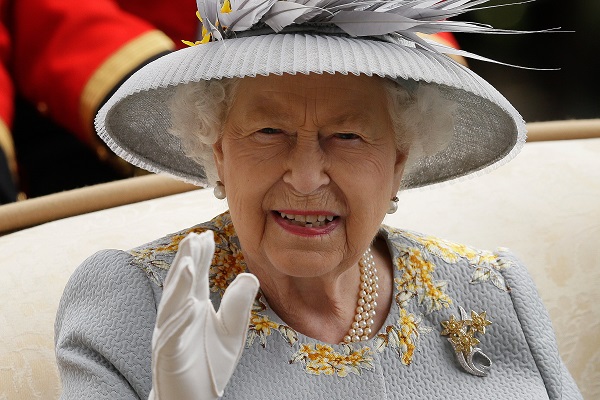London, Queen Elizabeth II on Wednesday approved UK Prime Minister Boris Johnson’s order to suspend Parliament in second week of September, just weeks before the Brexit deadline on October 31.
Johnson’s surprise move to suspend Parliament prompted widespread criticism from the opposition amid accusations of a “coup” as it can prevent MPs from voting to block a possible no-deal Brexit.
According to a statement from the Privy Council — a body of senior politicians who act as the Queen’s official advisers — the Queen approved the suspension of Parliament “no earlier than Monday 9th September and no later than Thursday 12th September” until October 14.
The suspension comes just a week after MPs return from their summer recess and is intended for the government to hold a Queen’s Speech on October 14.
In a letter to lawmakers, Johnson confirmed earlier in the day that he had asked the Queen to suspend the current parliamentary period. He rejected the idea that the motive behind his decision was to give lawmakers less time to stop a no-deal Brexit. He said that suggestion was “completely untrue”, the BBC reported.
“We need new legislation. We’ve got to be bringing forward new and important bills and that’s why we are going to have a Queen’s Speech.”
He said that he believed any vote in the House of Commons, the UK’s lower legislative chamber, on the government’s new programme or a possible deal with the EU should be done once his Cabinet’s ambitions are clear and after the conclusions of a European Council meeting on October 17-18 are known, according to Efe news.
The House is therefore set to be suspended from September 10 till October 14.
MPs will return to work on September 3 and Brexit, as Johnson has repeatedly said, will go ahead with or without a deal on October 31.
The decision prompted immediate and fierce protest from political leaders in the opposition whereas the Conservative Party’s leadership played the move off as “normal government protocol”.
House of Commons Speaker John Bercow said it was a “constitutional outrage”. The Speaker, who does not traditionally comment on political announcements, continued: “However it is dressed up, it is blindingly obvious that the purpose of (suspending Parliament) now would be to stop (MPs) debating Brexit and performing its duty in shaping a course for the country.”
Opposition Labour Party leader Jeremy Corbyn said: “Suspending Parliament is not acceptable, it is not on. What the Prime Minister is doing is a smash and grab on our democracy to force through a no deal.”
He said when MPs return to the Commons next Tuesday, “the first thing we’ll do is attempt legislation to prevent what (the PM) is doing”, followed by a vote of no confidence “at some point”.
But US President Donald Trump was all praise for Johnson, saying, he was “exactly what the UK has been looking for”.
“Love UK,” he tweeted.
Johnson said the House of Commons could vote on a possible EU agreement on October 21-22. He has kept the option of a no-deal Brexit, whereby the UK crashes out of the bloc with no future relationship in place, firmly on the table.
Shadow Chancellor of the Exchequer John McDonell called the move a “very British coup”.
With just 64 days until Brexit, talks between the UK and the EU’s negotiating teams have stalled.
Johnson, who campaigned for Leave in the run-up to the 2016 referendum, is opposed to the current withdrawal deal, which was drawn up by his predecessor Theresa May and was rejected three times by the Commons.
The EU has repeatedly said it would not reopen the withdrawal deal. One of the key sticking points in the deal for hardline Brexit politicians like Johnson is the so-called Irish backstop — a mechanism that would ensure a soft border between Northern Ireland, a UK territory, and the Republic of Ireland, an EU member state, in the event that a future deal between the EU and the UK falls through.










